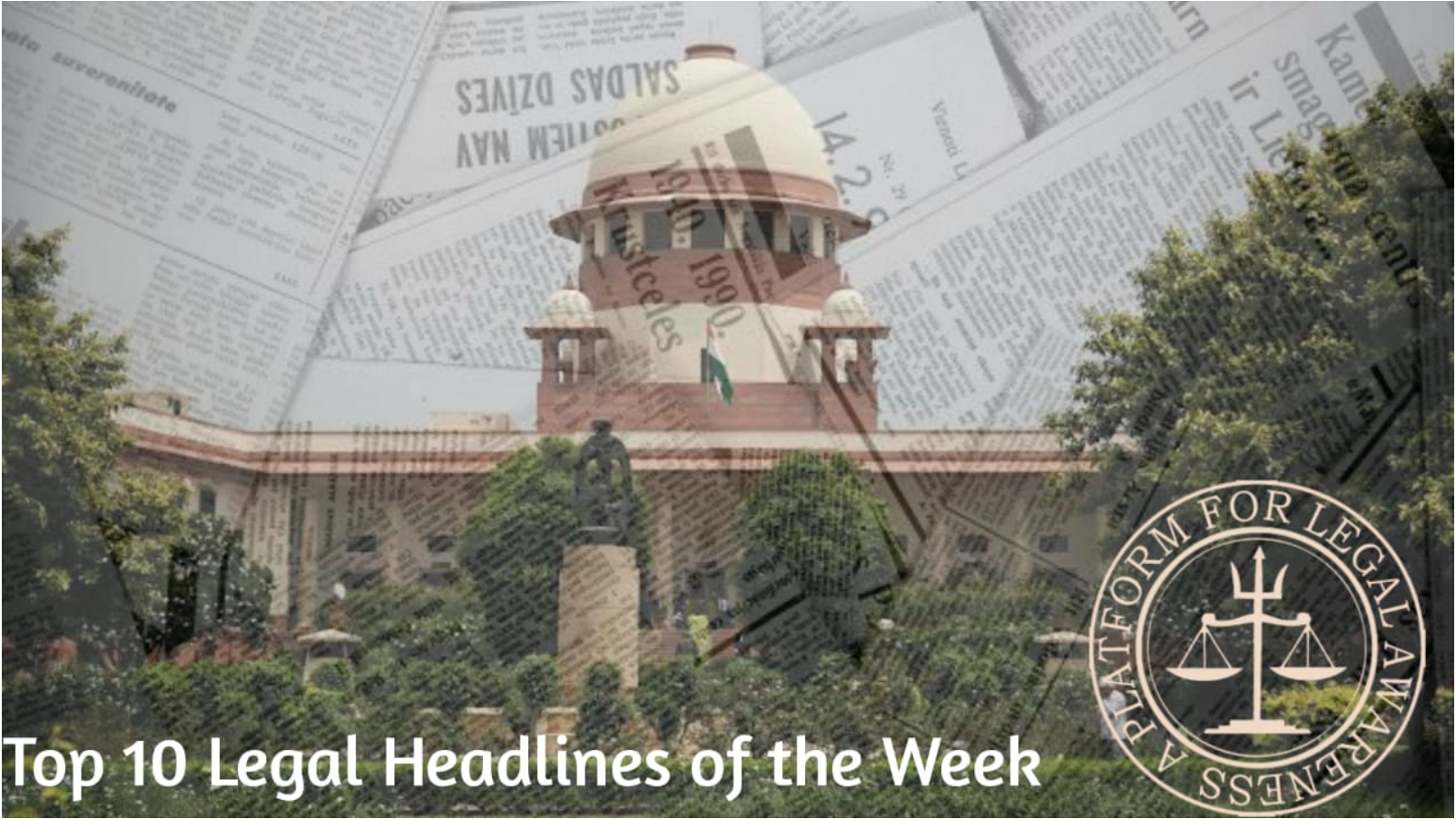1. ED can summon any person; those summoned are expected to respect and respond: Supreme Court
The Supreme Court has stressed that individuals summoned under Section 50 of the Prevention of Money Laundering Act (PMLA) must comply with the Enforcement Directorate (ED). This follows Delhi Chief Minister Arvind Kejriwal's refusal to appear in the Delhi liquor policy case despite six summonses, leading to a complaint by the ED. The court insists those summoned are obliged to respond, appear, and provide evidence as needed in money laundering investigations.
2.NCLT Bengaluru issues notice to Byju's on insolvency plea by International lender
The National Company Law Tribunal (NCLT) in Bengaluru has issued a notice on a petition by Glas Trust LLC, a US-based lender, seeking insolvency proceedings against Think & Learn Pvt Ltd, the parent company of Byju's. Biju’s is accused of defaulting on a loan repayment of over ?8,000 crore, with Glas Trust Company stating that the default started in 2022. The NCLT has directed Byju's to respond within three weeks. Three other lenders, including Surfer Technologies and Teleperformance Business Services, have also sought insolvency proceedings against Byju's.
3. Men too can be victims of sexual assault; many POCSO case victims are boys: Kerala High Court
The Kerala High Court, while considering a petition challenging a protocol in Kerala that calls only gynaecologists, preferably women, to examine sexual assault victims, observed that sexual assault is not exclusive to women but can also happen to men. Justice Devan Ramachandran acknowledged that while a majority of victims are women, men can also be victims, citing an increase in boys as victims under the Protection of Children from Sexual Offences Act (POCSO Act). The court highlighted the need to recognise and address sexual assault against both genders.
4. SCBA President assures Delhi High Court it will hold a meeting in 2 months to discuss reservations for women lawyers in EC
Advocate Yogamaya MG requested the Supreme Court Bar Association (SCBA) to nominate two female members to its Executive Committee. With no response, she petitioned the High Court, leading to SCBA President Adish Aggarwal committing to convene a meeting within two months to discuss amending rules for reserving two committee positions for female lawyers. The Court disposed of the plea in light of the President's assurance.
5. Supreme Court overturns Asian Resurfacing judgment; no automatic vacation of stay orders after six months
The Supreme Court Constitution bench overturned its 2018 ruling limiting interim stay orders to six months. Chief Justice DY Chandrachud, along with Justices Oka, Pardiwala, Mithal, and Misra, stated that there won't be an automatic vacation of stay orders after six months, disagreeing with the previous decision in the Asian Resurfacing case. The bench set aside the directions in the 2018 judgment, which mandated that stay orders be valid for only six months unless expressly extended.
6. Former High Court judge claims two men cheated him out of ?2.5 crore on the pretext of buying electoral bonds to fund BJP
Former High Court judge Justice DSR Varma has filed a criminal complaint accusing Narendran and Sarath Reddy of cheating him. The complaint alleges that the accused took ?2.5 crore from him, claiming it was for purchasing electoral bonds for the Bhartiya Janata Party (BJP). According to the First Information Report (FIR) filed in Hyderabad on February 27, Justice Varma's family arranged and paid the amount, but no electoral bonds were issued. The bonds were purportedly intended for the BJP-led government in the Center since 2021.
7. Times Now Navbharat linking every instance of murder or violence against women to 'love jihad': NBDSA
The News Broadcasting and Digital Standards Authority (NBDSA) has taken action against Aaj Tak, Times Now Navbharat, and News18 India for spreading communal disharmony. A complaint accused Aaj Tak's Black and White show of blaming Muslims for violence in Bihar, falsely claiming exclusive Muslim areas. The NBDSA found the broadcast problematic for targeting a specific community instead of focusing on communal violence. Regulatory actions aim to ensure responsible journalism, emphasising accuracy and unbiased reporting.
8. Madras High Court quashes provisional recruitment list for 245 civil judges, citing violation of reservation rules
The Madras High Court cancelled the provisional recruitment of 245 civil judges for Tamil Nadu's judicial service, citing violations of reservation rules. The court directed the Tamil Nadu Public Service Commission (TNPSC) to issue a revised list within two weeks. The decision followed writ petitions by nine applicants, revealing discrepancies in the allocation of reserved seats. The court emphasised the failure to implement reservation guidelines under the Tamil Nadu Government Servants (Conditions of Service) Act, 2016, leading to the cancellation of the selection list issued on February 16.
9. RTI: Delhi High Court sets aside CIC order to disclose tax exemptions sought by Ram Mandir Trust
The Delhi High Court overturned a CIC order directing the CBDT to disclose information under RTI regarding tax exemptions for the Shri Ram Janmabhoomi Teerth Kshetra Trust. The trust, established for the Ram Temple in Ayodhya, faced the RTI request from Kailash Chandra Moondra. On February 28, the court accepted the government's argument that details about an assessee are exempt under the RTI Act (Section 138(1)(b) of the Income Tax Act, 1961).
10. Need to evaluate why District Judges are not following the "bail is rule" principle: CJI DY Chandrachud
Chief Justice of India (CJI) DY Chandrachud expressed concern at the Judicial Officers Conclave in Kachchh, Gujarat, stating that the fundamental principle of "bail is the rule, and jail is the exception" is diminishing in district courts nationwide. CJI Chandrachud urged a thorough examination of why district courts appear hesitant to uphold the personal liberty of citizens. He emphasised the need for district judges to provide insights into this trend and address the growing apprehension surrounding the reluctance to grant bail.

